Vocabulary enhancement Normal Physical Science Worksheets for Ages 4-8
6 filtered results
-
From - To
Discover our engaging Vocabulary Enhancement Normal Physical Science Worksheets, specially designed for young learners aged 4-8. These worksheets aim to enrich children's vocabulary while exploring essential concepts in physical science. Interactive and fun, they encourage children to connect words with their meanings through vibrant illustrations and hands-on activities. Each worksheet promotes essential skills like language development, critical thinking, and scientific reasoning, ensuring a well-rounded educational experience. Perfect for classroom use or home learning, our resources strive to make science accessible and exciting. Empower your child’s learning journey with our thoughtfully crafted activities that foster curiosity and a strong foundation in physical science!
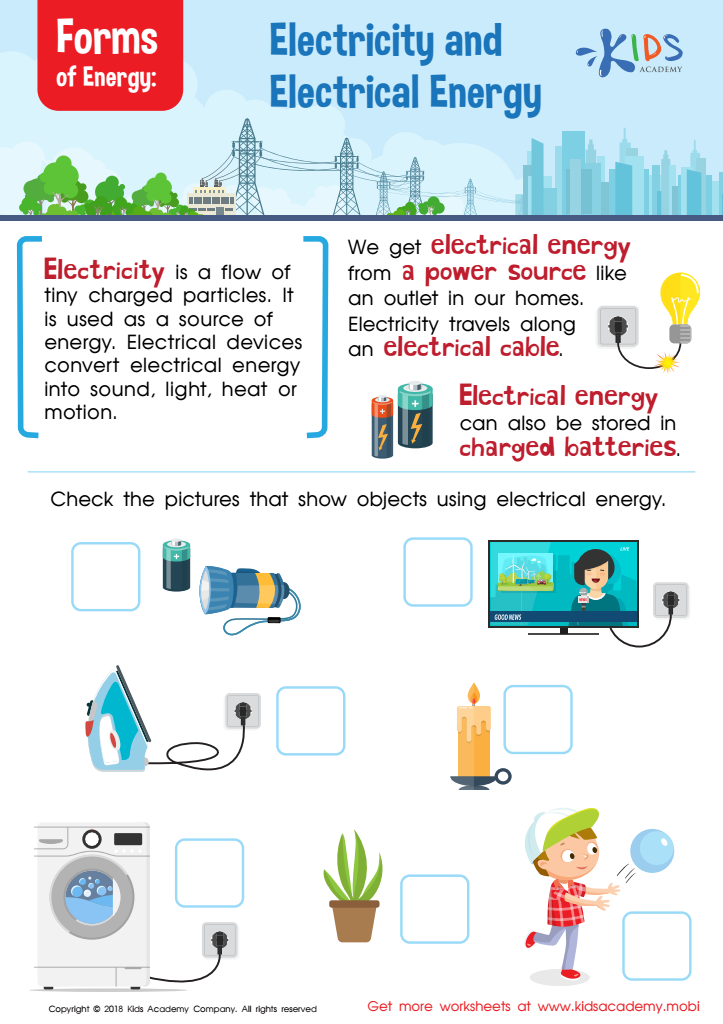

Forms of Energy Worksheet
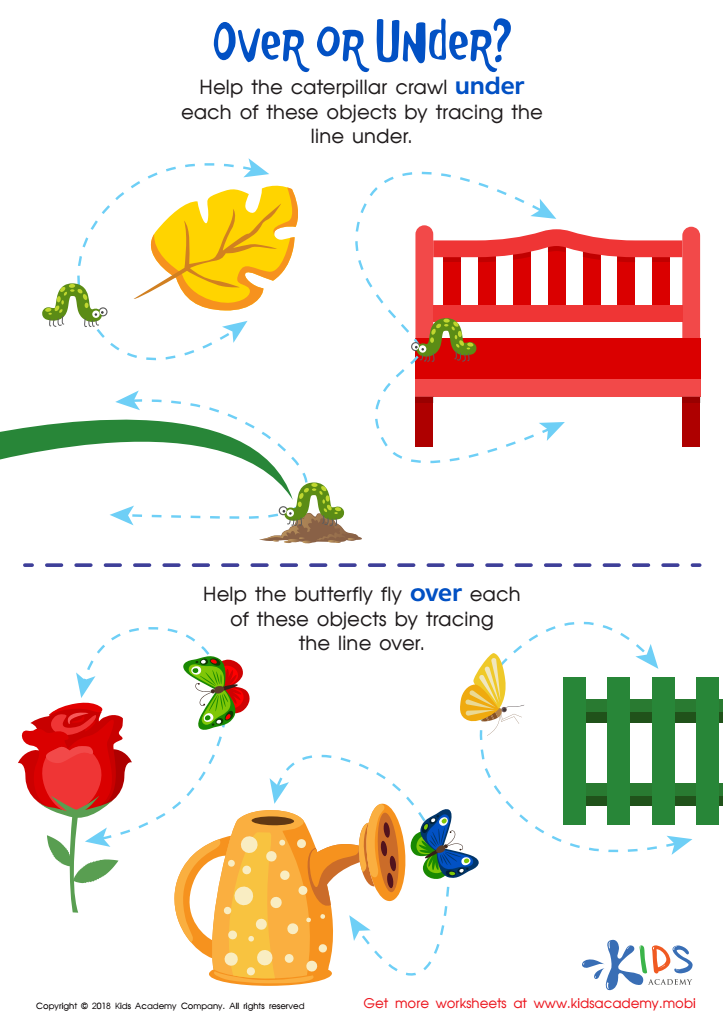

Over or Under? Worksheet
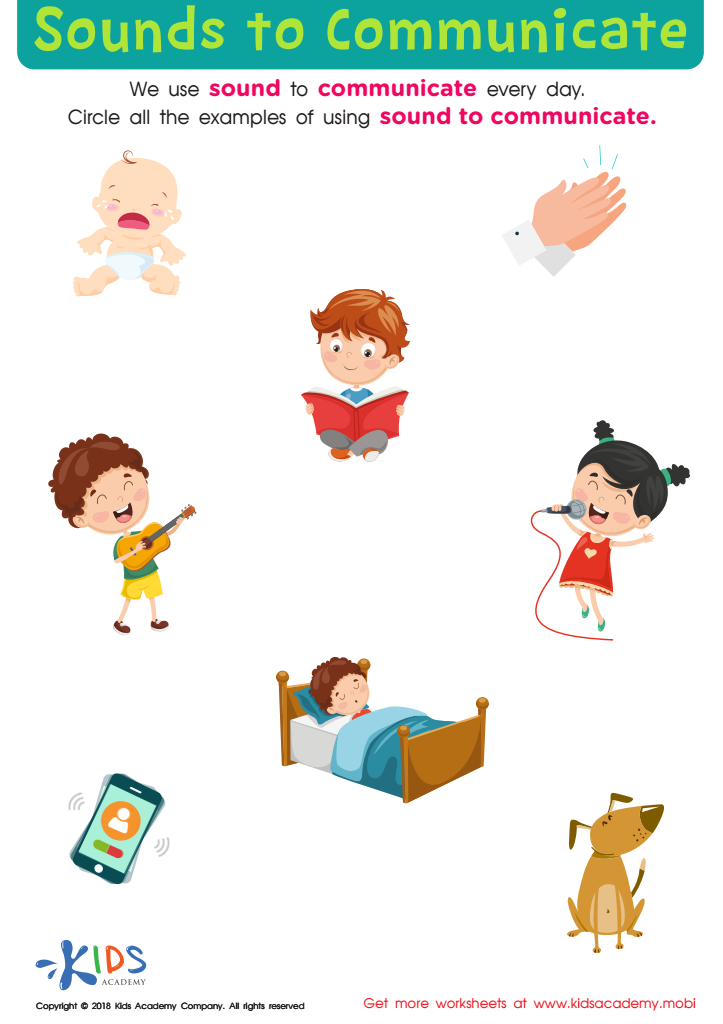

Sounds to Communicate Worksheet
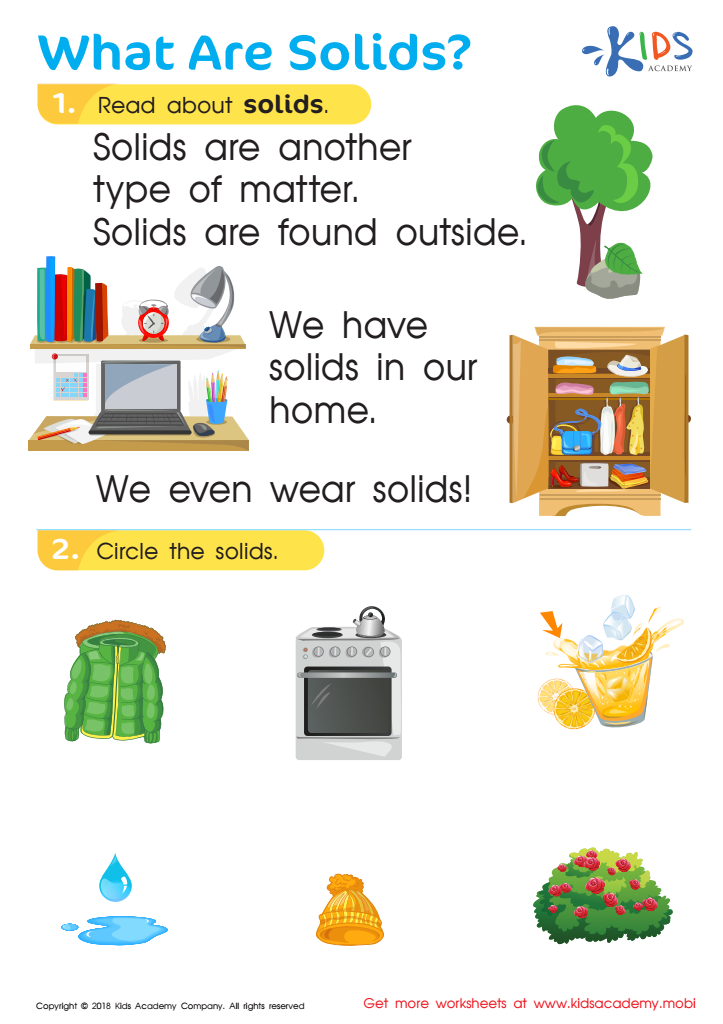

What Are Solids? Worksheet
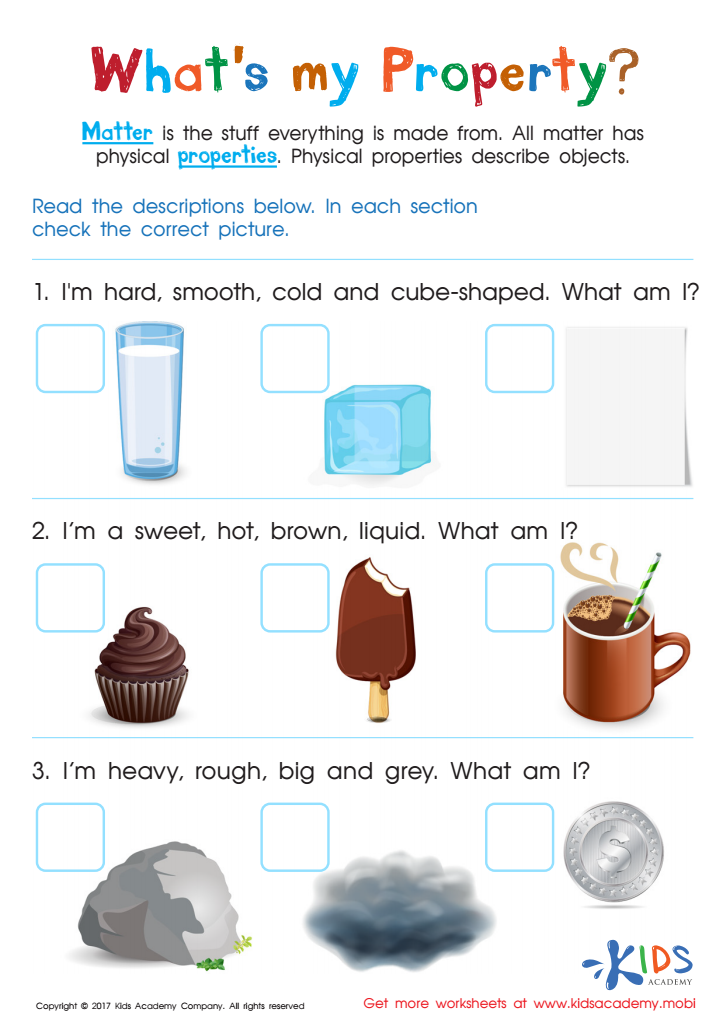

Physical Properties Of Matter Worksheet
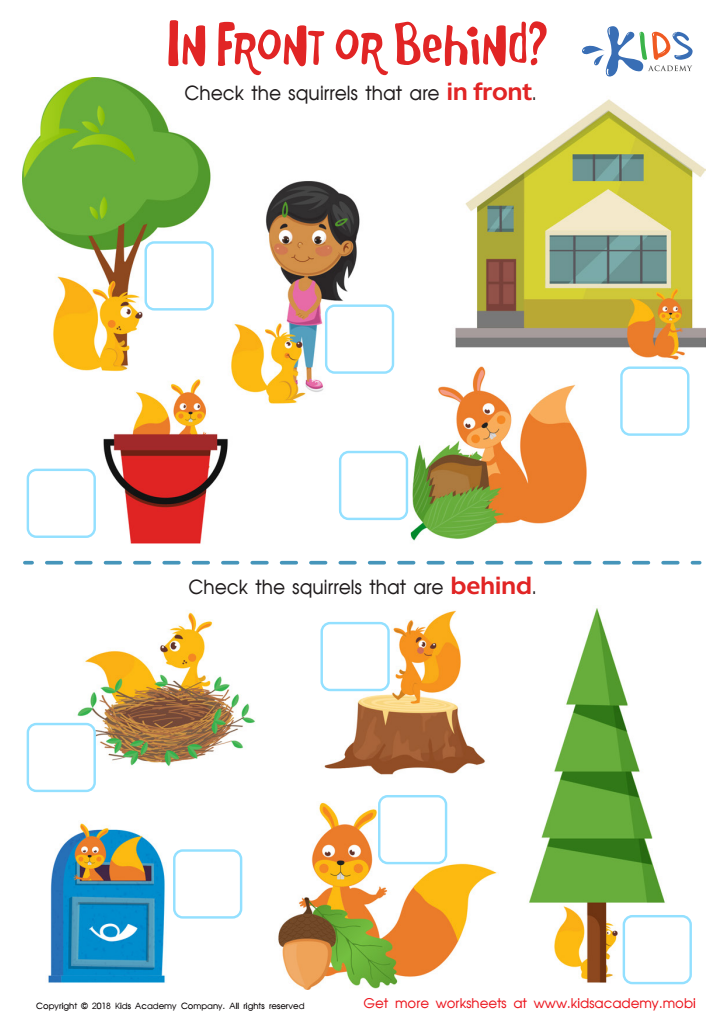

In Front or Behind: Part 2 Worksheet
Vocabulary enhancement in Normal Physical Science for ages 4-8 is crucial for several reasons. First, a strong vocabulary lays the foundation for effective communication. When children build a robust vocabulary related to scientific concepts, such as "force," "gravity," and "atom," they gain the ability to express their observations and questions about the natural world.
Second, understanding scientific terminology is vital for cognitive development. At this young age, children are naturally curious, and engaging them with age-appropriate vocabulary fosters critical thinking. It allows them to categorize and articulate their experiences, deepening their comprehension.
Third, enhanced vocabulary in science supports academic readiness. As children progress in their education, a solid foundation in scientific language will facilitate their understanding of more complex concepts in later grades. This prepares them for standardized assessments and encourages a love of learning in science.
Additionally, fostering scientific vocabulary also promotes collaboration and discussion among peers. When children can engage in conversations using specialized terms, they learn to articulate their thoughts, listen to others, and think collaboratively.
Thus, parents and teachers should prioritize vocabulary enhancement in Normal Physical Science, as it significantly influences children's language development, critical thinking skills, academic success, and their enjoyment of learning science.
 Assign to My Students
Assign to My Students








.jpg)







